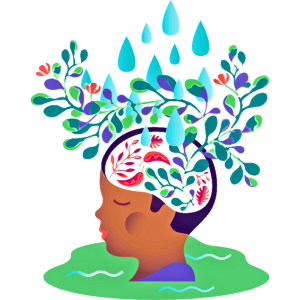
Dr Sathiya Ganesan’s
Guiding Young Minds Back to Reality, Hope, and Healing.
Psychotic disorders in children are rare but serious mental health conditions that can affect perception, thinking, emotions, and behavior. Early symptoms may go unnoticed or be mistaken for imagination, fear, or developmental delays.
Dr. Sathiya Ganesan, Consultant Child & Adolescent Psychiatrist, offers structured, compassionate, and evidence-based treatment for psychotic disorders — helping children and teens stabilize, regain control, and reconnect with reality.
Understanding Psychotic Disorders in Children
Recognizing and Treating Thought Disturbances in Young Minds

Psychosis refers to a condition in which a child loses touch with reality, experiencing hallucinations, delusions, disorganised speech, or behaviour. Though most commonly seen in adolescents and adults, early-onset psychosis can occur in children and must be addressed promptly.
Common psychotic disorders in children include:
- Childhood-Onset Schizophrenia
- Brief Psychotic Disorder
- Schizoaffective Disorder
- Psychosis due to medical conditions or substance use
- Mood Disorders with Psychotic Features (e.g., Bipolar Disorder)
Psychotic episodes are not “bad behavior” — they are neurological disruptions that require urgent and expert psychiatric intervention.
Common Signs of Psychosis in Children and Adolescents
Symptoms may vary but often include:
- Hearing voices or seeing things that are not there (hallucinations)
- Strong false beliefs that don’t match reality (delusions)
- Disorganised speech or difficulty staying on topic
- Unusual or withdrawn behaviour
- Talking to oneself or staring for long periods
- Decline in academic performance or personal hygiene
- Fearfulness, agitation, or suspicion of others
- Social withdrawal or loss of interest in previously enjoyed activities
These symptoms may emerge gradually or suddenly and should never be ignored.
Expert Evaluation and Differential Diagnosis
Dr. Ganesan provides a calm, child-sensitive environment for assessment. His evaluation includes:
- Detailed clinical interview with the child and caregivers
- Review of developmental, academic, and emotional history
- Screening for autism, ADHD, mood disorders, and trauma
- Coordination with pediatricians to rule out neurological or medical causes
- Cognitive and behavioral observation in safe, non-threatening ways
Early and accurate diagnosis is crucial for improving long-term outcomes.
Personalized Treatment Plans and Stabilization
Treatment is tailored to the child’s specific symptoms, age, and level of functioning. Dr. Ganesan focuses on:
- Reducing psychotic symptoms
- Supporting emotional and cognitive recovery
- Reintegrating the child into daily life and school routines
- Engaging families as core partners in care
- Preventing relapse and long-term functional decline
Care is structured and step-by-step, providing safety and predictability for the child and family.
Antipsychotic Medication Management (When Needed)
In most moderate to severe cases, second-generation antipsychotic medications may be prescribed. Dr. Ganesan uses medications:
- Judiciously and at the lowest effective dose
- With careful monitoring of side effects (weight, metabolism, movement)
- In conjunction with therapy and family education
- With regular reviews and safety checks
Medication helps reduce hallucinations, delusions, and agitation, allowing children to engage in therapy and school life more effectively.
Individual and Family-Based Therapy
Therapy is essential for recovery and adjustment. Dr. Ganesan offers:
- Supportive Psychotherapy to help children understand their experiences
- CBT for psychosis (for older children/teens) to reduce symptom distress
- Psychoeducation for families to reduce fear, improve understanding, and prevent burnout
- Relapse prevention strategies including early warning sign identification
Families are guided step-by-step on how to support recovery at home without judgment or stigma.
School Reintegration and Academic Planning
Psychotic disorders often affect school functioning. Dr. Ganesan works with schools (with parent consent) to:
- Recommend tailored academic accommodations
- Address social or behavioral concerns
- Prevent bullying or isolation
- Support reintegration after hospitalization or therapy gaps
Children are helped to resume education with dignity, protection, and success.
Safe and Secure Online Consultations
For regular follow-ups and parental guidance, Dr. Sathiya Ganesan offers secure telepsychiatry for:
- Symptom updates
- Medication management
- Emergency guidance
- Behavioural coaching and relapse planning
Virtual care adds convenience without compromising on safety or quality.

Why Choose Dr. Sathiya Ganesan for Pediatric Psychotic Disorders?
Dr. Sathiya Ganesan combines deep clinical knowledge with empathy and calm to treat complex psychiatric conditions in children. His gentle, structured approach:
- Builds trust with young patients
- Reduces stigma and fear
- Involves the family in every step of treatment
- Encourages realistic hope and long-term recovery planning
His goal is not only to stabilize but to help children thrive beyond the diagnosis.
Early Help Can Change the Trajectory
If your child is experiencing unusual thoughts, behaviors, or perceptions, don’t wait or dismiss it as imagination.
Contact Dr. Sathiya Ganesan today for a timely and expert evaluation that can change the course of your child’s life.
Can young children have psychosis?
Yes, although rare, psychotic disorders like childhood-onset schizophrenia can appear before age 13. Early symptoms may resemble anxiety, autism, or behavioral issues.
What causes psychosis in children?
Causes may include genetic vulnerability, neurodevelopmental factors, brain chemistry imbalances, or trauma. Dr. Ganesan performs a thorough evaluation to determine contributing factors.
Can psychotic disorders be cured?
While not always curable, with early intervention, many children can manage symptoms effectively, lead functional lives, and experience significant recovery.
How do medications help in psychosis treatment?
Antipsychotic medications reduce hallucinations, delusions, and disorganized thinking. Dr. Ganesan uses them cautiously, monitoring closely for side effects.
Is therapy effective in treating child psychosis?
Yes. Therapy helps children understand their experiences, cope with distress, and re-engage with school and social life. Family therapy is equally vital for support.


